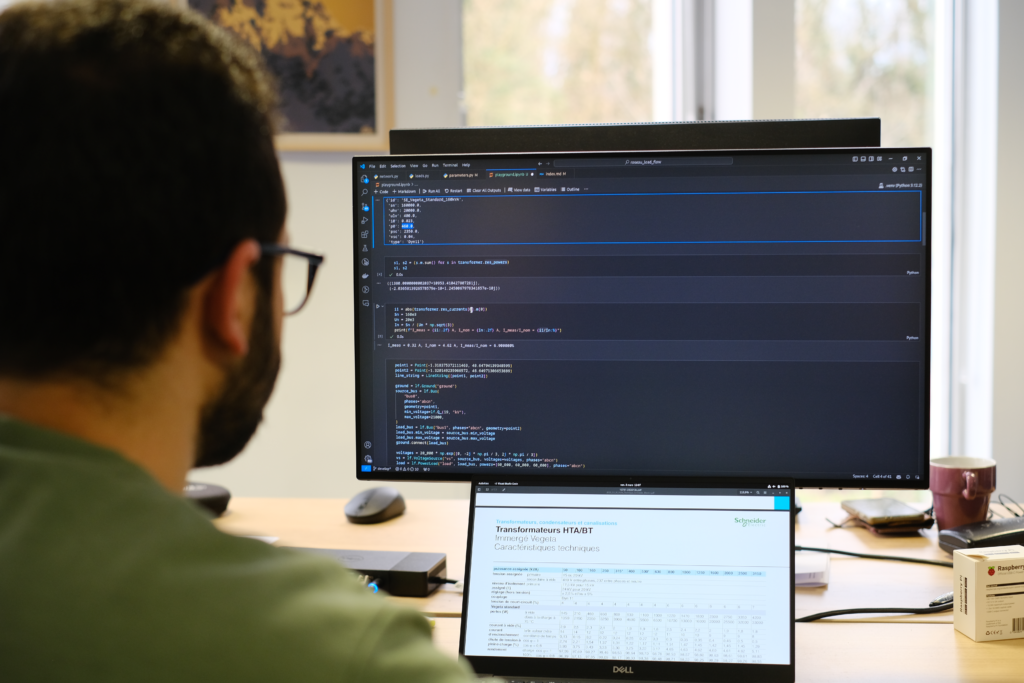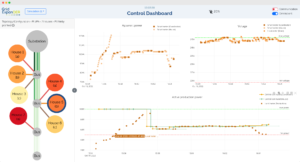A few years ago, we decided to develop our own power flow solver. It’s a decision that may seem unusual, given that many commercial and Open Source solvers exist on the market, but after years of Research and Development in the field of electricity distribution networks, the realisation was simple; none of the many existing solvers, despite their qualities, fully met our internal needs.
For us, a power flow solver had to meet certain criteria:
- Complete line models, for maximum accuracy. Because the equations of the three-phase line models were too complex when the first solvers were implemented, simplifications were necessary. The counterpart is of course a deterioration in the accuracy of the model, particularly with regard to the neutral current of highly unbalanced networks, which is common in the study of distribution networks. Today’s calculation capabilities make such approximations obsolete: we therefore refuse to accept Kron’s reductions and other obsolete simplifications!
- Flexible load modelling, to study modern networks. Traditionally, decentralised loads and production facilities are modelled as independent of the electrical state of the network: they draw or inject a power P, which is generally constant. However, it is sometimes useful to model voltage-dependent loads, for example when studying the P(U) and/or Q(U) control of generation facilities, which automatically modulate the power injected in order to avoid voltage constraints on the network. This type of control is becoming increasingly common, if not mandatory, on European distribution networks!
- A clear, modular and complete solver, for efficient and comfortable day-to-day use: taking into account radial AND mesh networks, the possibility of choosing work units, etc.: the solver is one of our main working tools, and it is important to us that it is pleasant to use.
So we developed Roseau Load Flow, a particularly powerful solver that meets our needs perfectly, and which we enhance regularly. And because we believe that accessibility to robust simulation tools is essential, particularly for researchers, teachers and students, we have created two types of free licence:
– a free public key is available for calculations on networks of up to ten nodes;
– and free personal licence keys for students, teachers and researchers who request them.

You’ll find more information on Roseau Load Flow in the dedicated documentation and by checking the Github repository.





